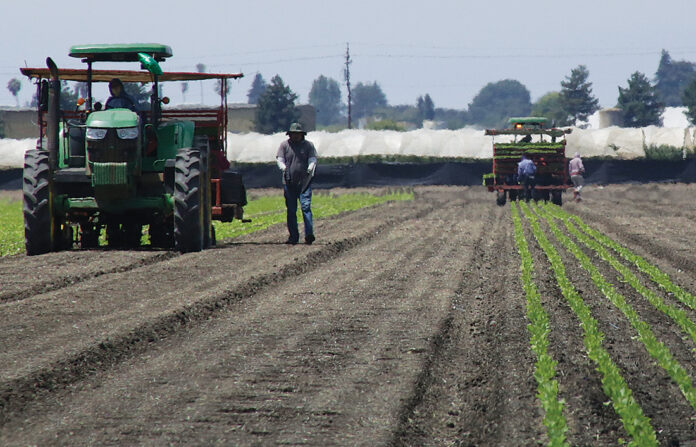WATSONVILLE—Gov. Gavin Newsom on July 24 revealed a new temporary housing program that aims to help agricultural workers across the state better protect themselves and their families during the Covid-19 pandemic.
Housing for the Harvest will offer temporary hotel housing to workers who need to isolate due to Covid-19. Through the program the state will book hotel rooms in participating counties for workers who need to self-isolate for up to 14 days because of the novel coronavirus.
Eligible workers must meet three criteria: (1) be employed in food processing or agriculture, (2) test positive for Covid-19 or be exposed as documented by a public health official or medical health professional and (3) be unable to self-isolate at home.
The Federal Emergency Management Agency will cover 75% of the program’s cost and the rest will fall on the participating county. Philanthropy may cover part or all of those costs and some may be eligible for FEMA reimbursement by the county.
The program will be run by a local agency, which will be in charge of working with the state to book the rooms, ensure the services are provided in the participant’s language, provide services at the hotel site—including transportation, meals and wellness checks—and collect data required for FEMA reimbursement.
In Santa Cruz County, County Agricultural Commissioner Juan Hidalgo said county staff would most likely coordinate the program.
It will initially focus on the Central Valley, Central Coast and Imperial Valley regions, the areas of the state with the highest number of agricultural workers.
The program builds on the state’s already-established isolation programs, including Hotels for Health Care Workers serving Covid-19 positive patients and Project Roomkey, the shelter program for Covid-19 positive, exposed or vulnerable homeless Californians.
The announcement comes as Covid-19 infection numbers statewide have disproportionately affected the Latinx community, which makes up the majority of the workforce in essential fields such as agriculture, construction, food preparation, truck drivers and cashiers, among others.
“When people ask, as they often do, ‘where are we seeing the spread?’ This is where we’re seeing the spread,” Newsom said. “The essential workforce, disproportionately represented by the Latinx community.”
That has held true in Santa Cruz County, as 53.48% of the county’s more than 900 cases have been in the Latinx community despite that demographic only making up 33.5% of the county’s population, according to county data.
Cases in Santa Cruz County’s farmworker population, however, have remained low. Only 69 cases have been identified in the county’s farm and agricultural workers.
Ann Lopez of the Center for Farmworker Families, a nonprofit that advocates and supports that community, vouched for that low count, saying that she has not heard of any outbreaks from her clients living around the Pajaro Valley.
She attributes that success to various education campaigns launched by the city, county, local and state organizations and community groups that have emphasized physical distancing, the use of masks and good hygiene. These campaigns have taken various forms, including public service announcements over the radio and social media and distribution of masks and informational pamphlets.
“We started doing this in late March and early April and I’m sure it’s made a difference,” Lopez said.
Hidalgo said the housing program will not change much for Santa Cruz County ag workers, as the county has for months been providing emergency housing services through other state programs for those who have needed to self-isolate but could not do so at their home.
It will, however, provide a dedicated federal funding source for temporary farmworker housing.
Lopez said the announcement and the acknowledgment from Newsom was a win for farmworkers statewide.
“When I started doing this in 2012, there was little respect for these workers and now they’re being called essential,” she said. “For years, they’ve been invisible. Not anymore.”
Hidalgo said the county is also very close to finalizing a deal with a hotel in Watsonville that will be used to isolate farmworkers who have tested positive for Covid-19 or have possibly been exposed to the virus in the workplace. Hidalgo said it is a precautionary measure in order to protect the roughly 9,000 workers currently in the area during the peak summer crop season.
“We wanted to make sure that our county is ready and committed to supporting our ag industry,” he said.











